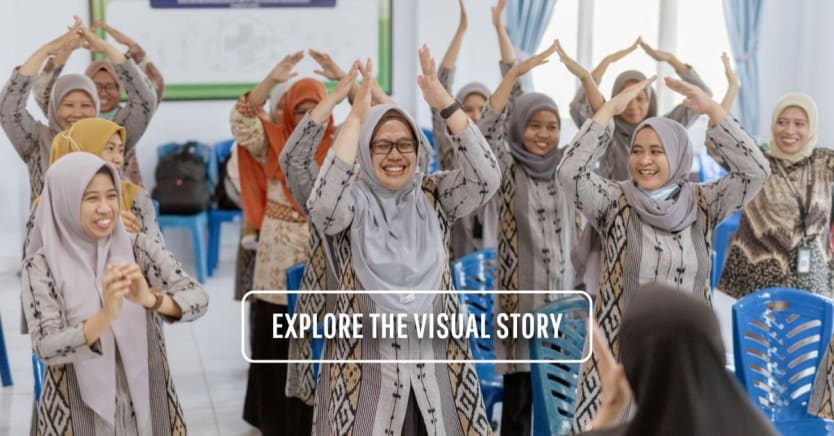
Last fall, Indonesia announced it was transitioning away from providing iron folic acid, or IFA, to pregnant women and instead offering the United Nations International Multiple Micronutrient Antenatal Preparation, or UNIMMAP, also referred to in this article as simply MMS. The change, supported by Vitamin Angels, UNICEF, Kirk Humanitarian, the World Bank, and many others, aims to improve maternal and newborn outcomes.
As it stands, rates of maternal malnutrition are high in Indonesia, and nearly half of all pregnant women suffer from anemia. This can lead to serious complications for both mother and baby, including preterm birth, low birth weight, stunting, and increased risk for maternal and child deaths.
Maternal mortality in Indonesia persists, with 173 women dying for every 100,000 live births — although this has improved from 299 per 100,000 in the year 2000. As part of its measures to address the issue, the Indonesian Ministry of Health has long provided IFA supplements. Yet, research shows that MMS will do even more to advance the health of pregnant women and newborns in the country.
“MMS has been proven to contribute to better pregnancy outcomes when compared to just taking IFA alone. That’s because MMS has 15 essential vitamins and minerals instead of just IFA, which has just 2 ingredients,” explained Quinn Harvey, director of program quality and impact at Vitamin Angels, a public health nonprofit working to improve nutrition and health outcomes in low-resource settings worldwide.
The challenge, however, has been in creating the enabling environment for MMS — in terms of policy, the regulatory environment, supply, and delivery — which need to be addressed simultaneously to switch the mass rollout of one supplement to another. Over several years, Vitamin Angels and others have supported the country in making this decision, and now plans to work to ensure high levels of adherence. The aim, Harvey said, is to provide 4.8 million women with MMS by 2026, reaching all the country’s 38 provinces. So far, MMS has been rolled out to 15 districts. Last year, 1.3 million bottles of MMS were shipped, and over 100,000 of those supplements have already been distributed to community health centers. Another 1.3 million bottles are slated to be shipped to Indonesia in June.
Read the full Q&A with Vitamin Angel’s Quinn Harvey here.


